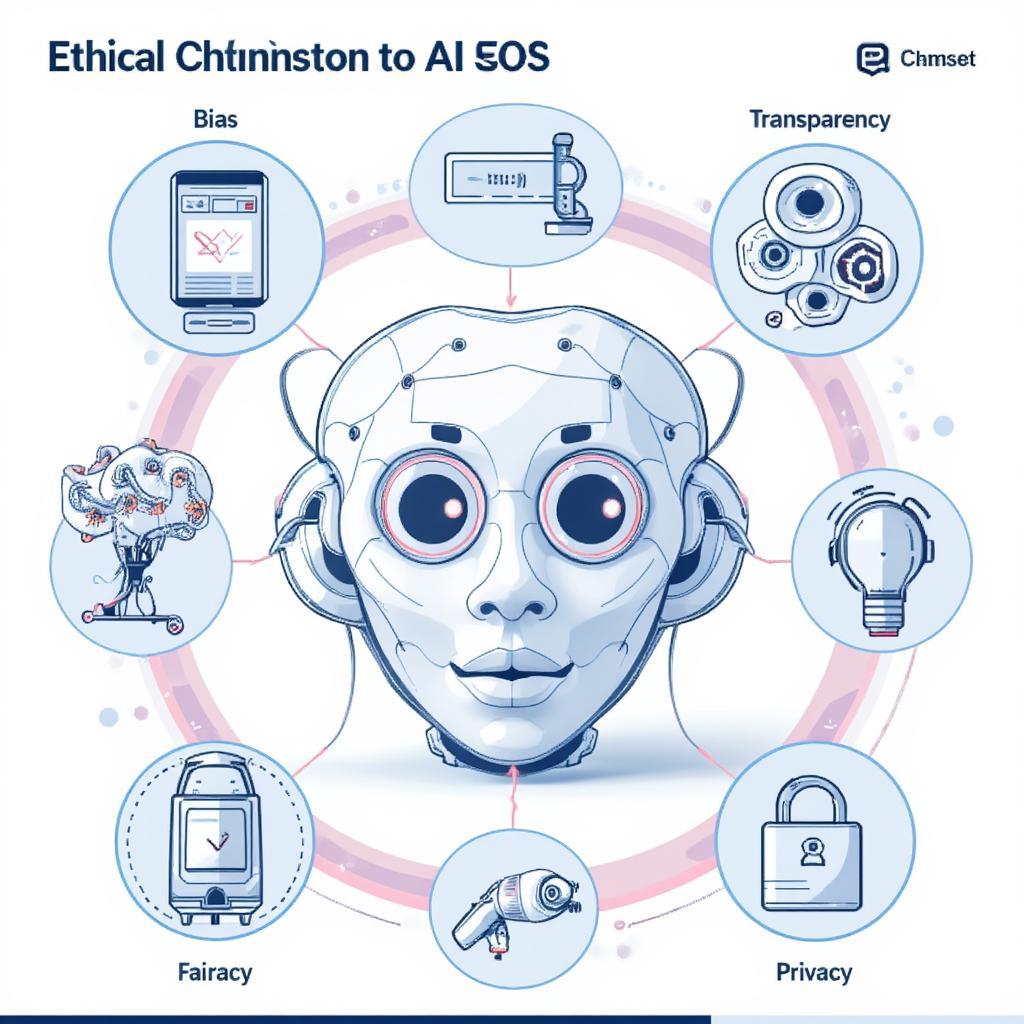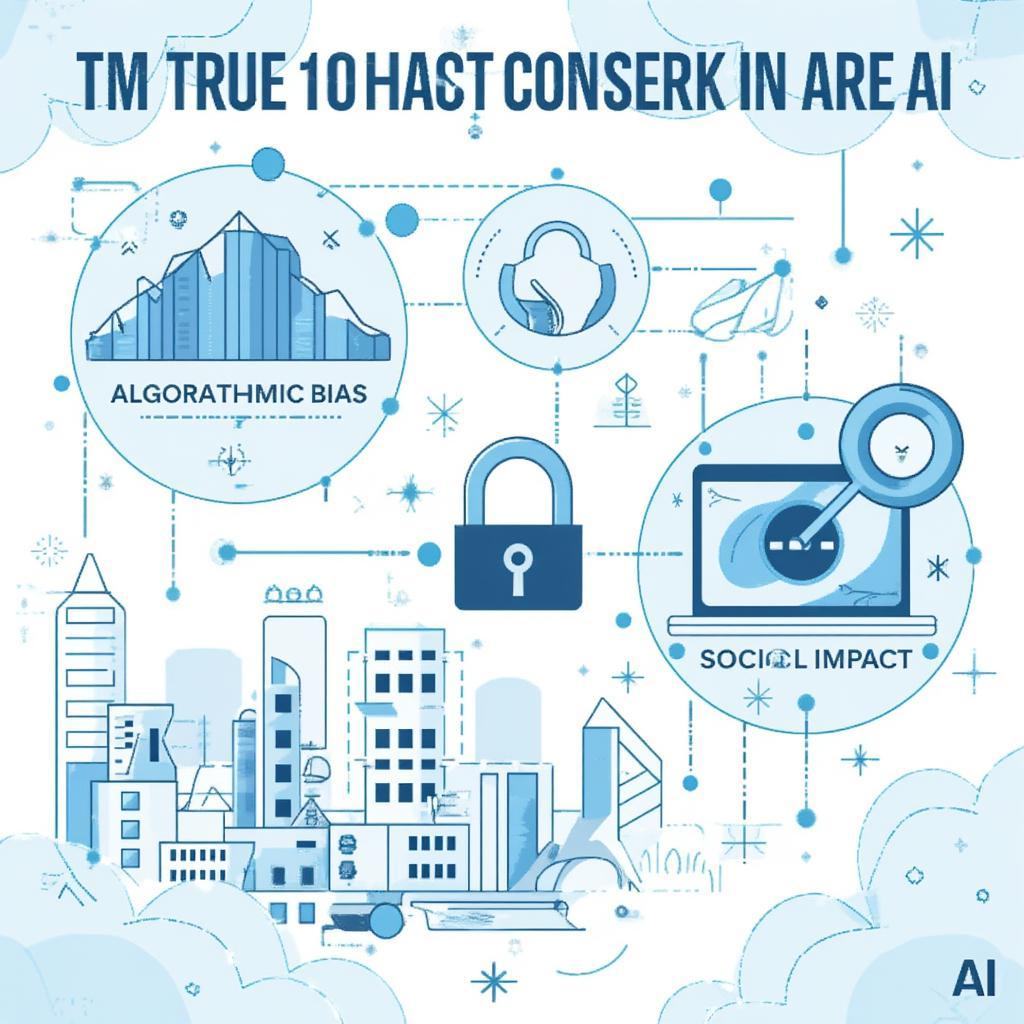Top Artificial Intelligence Courses: Charting Your AI Learning Journey

Embarking on a journey into the world of artificial intelligence can feel like stepping into a science fiction movie. But what if I told you that the tools to understand and build these futuristic technologies are within your reach? The field of AI is rapidly evolving, making it crucial to choose the right learning path. This article will navigate you through the landscape of Top Artificial Intelligence Courses, helping you pinpoint the best options to achieve your goals.
Why Should You Consider a Career in Artificial Intelligence?
The allure of AI isn’t just hype; it’s a genuine revolution unfolding before our eyes. From self-driving cars to virtual assistants, AI is reshaping industries at an unprecedented pace. This translates to a high demand for skilled professionals, making a career in AI a promising path for those seeking job security and a rewarding intellectual challenge. But beyond the career prospects, the potential of AI to improve lives is immense. Think about disease diagnosis, climate change modeling, and accessibility for the disabled; all are areas where AI can make a meaningful difference. The question isn’t just can we study AI, but should we not study it if we want to shape a better future? Are you ready to be part of this transformational process?
Navigating the World of AI Education: What Are Your Options?
The sheer number of AI courses available can be overwhelming. You will find everything from short introductory tutorials to intensive masters programs. Where do you start? Let’s break it down. There are primarily four main categories:
- Online Courses: These are often self-paced and flexible, allowing you to learn at your own schedule. Platforms like Coursera, edX, and Udacity offer a plethora of choices, covering specific areas of AI like machine learning, deep learning, or natural language processing.
- University Degrees: For a more structured and comprehensive education, a bachelor’s or master’s degree in computer science with a focus on AI is an excellent choice. This usually involves in-depth theoretical knowledge along with practical application.
- Bootcamps: These intensive, short-term programs are designed to quickly equip you with the necessary skills for entry-level AI roles. Bootcamps are perfect for those looking for a fast track into the industry.
- Workshops and Conferences: Attending workshops and conferences provides excellent opportunities for networking and gaining exposure to the latest trends and research in AI.
Now the question is, which path fits you best?
What Makes a Top Artificial Intelligence Course?
Not all AI courses are created equal. Several factors differentiate an exceptional learning experience from a mediocre one. Here are some things to consider:
- Curriculum: A top-tier course will offer a balanced mix of theoretical foundations and practical applications. Look for courses covering core concepts like linear algebra, calculus, and probability, and those that delve deep into algorithms and coding practices.
- Instructors: The quality of instruction can make or break a course. Check for faculty with real-world experience and a strong track record of research or development in AI.
- Hands-On Projects: Theory is essential, but the ability to apply that theory is crucial. Courses that emphasize hands-on projects, case studies, and simulations will help you gain practical, transferrable skills.
- Community Support: A supportive learning community can provide valuable assistance and networking opportunities. Look for courses with active forums, study groups, and mentorship programs.
- Career Services: Courses that offer career services like resume workshops, mock interviews, and connections to employers are particularly beneficial for those looking to transition into an AI role.
“The ethical dimensions of AI are just as important as the technical aspects,” states Dr. Anya Sharma, a leading AI ethicist at the Global AI Policy Institute. “We need to foster a culture of responsible innovation from the very beginning of AI education.”
Diving into the Specifics: What Are the Most Sought-After AI Skills?
Before choosing a course, it’s essential to identify what specific AI skills you want to master. Here are some of the most in-demand areas:
- Machine Learning: The cornerstone of AI, machine learning is about algorithms that allow computers to learn from data without explicit programming. This skill is highly valued across industries.
- Deep Learning: A subset of machine learning, deep learning uses neural networks with multiple layers to achieve high accuracy in complex tasks such as image recognition and natural language processing.
- Natural Language Processing (NLP): This field focuses on enabling computers to understand, interpret, and generate human language. NLP is fundamental to chatbots, voice assistants, and sentiment analysis tools.
- Computer Vision: This area allows computers to “see” and interpret images and videos. Applications include facial recognition, medical image analysis, and object detection.
- Reinforcement Learning: This approach allows AI agents to learn through trial and error, achieving specific goals by interacting with an environment. It’s crucial for robotics, game AI, and optimization problems.
- Data Science and AI Ethics: As AI becomes more prevalent, data science skills and an understanding of AI ethics become increasingly essential, ensuring fair and responsible AI development.
Where to Find the Top Artificial Intelligence Courses?
Now that you understand the landscape, let’s delve into some of the specific platforms and institutions offering top-notch AI courses.
Online Platforms
- Coursera: With partnerships with top universities worldwide, Coursera offers courses from beginner to advanced levels, covering a vast range of AI specializations.
- edX: Another leading platform, edX, provides access to courses from globally renowned universities and institutions, with options for certifications and professional programs.
- Udacity: Known for its “nanodegrees,” Udacity focuses on hands-on, project-based learning, preparing you for specific AI roles.
- Fast.ai: Famous for making deep learning accessible, Fast.ai offers practical, top-down teaching methods that emphasize coding and real-world examples.
- DeepLearning.AI: Founded by Andrew Ng, a pioneer in the field, DeepLearning.AI offers highly specialized courses, often focusing on deep learning and its various applications.
University Programs
Many universities now offer specialized AI programs. Here are a few examples:
- Stanford University: Their computer science program is one of the most highly ranked globally, offering specialized AI concentrations.
- Massachusetts Institute of Technology (MIT): MIT’s AI courses are renowned for their rigor and innovation, attracting top talent worldwide.
- Carnegie Mellon University: Known for its strong AI and robotics programs, Carnegie Mellon provides an excellent learning environment for aspiring AI professionals.
- University of California, Berkeley: Berkeley’s AI courses are respected for their balance of theory and practical skills, particularly in machine learning.
- University of Oxford: Oxford’s AI courses provide a strong grounding in the foundations of AI, alongside cutting-edge research opportunities.
Bootcamps
- General Assembly: Offers immersive AI bootcamps designed to accelerate your path to an AI career.
- Flatiron School: Provides intensive data science programs with a focus on practical AI skills.
- Metis: Specialized in data science and AI bootcamps, Metis emphasizes mentorship and career support.
“The future of AI education isn’t just about learning the algorithms; it’s about understanding how those algorithms shape our world and our society,” emphasizes Professor Ben Carter, a computer science professor at MIT. “Ethics and social responsibility are as crucial to AI education as the technical skills.”
What Are Some of the Practical Steps to Begin Your AI Learning Journey?
Embarking on your AI learning journey can seem like a big commitment, but remember that every expert started somewhere. Here are some practical steps to guide you:
- Assess your background: Are you new to programming, or do you have prior experience? This will influence your choice of introductory or advanced courses.
- Define your goals: What specifically do you want to achieve with your AI education? Are you looking for a career change, to build your own projects, or to contribute to research?
- Explore course options: Do some research into the courses listed above. Compare curriculum, instructor profiles, reviews, and cost.
- Start with foundational courses: Build your base by starting with courses covering fundamental concepts.
- Practice, practice, practice: Work on projects, contribute to open-source communities, and apply what you learn.
- Network and collaborate: Connect with other learners, build relationships with professionals, and take advantage of networking opportunities.
- Stay updated: The field of AI is dynamic and evolving, so commit to continuous learning.
How Can I Find the Right Course for Me?
Finding the right AI course is like finding the right pair of shoes – it needs to fit your needs perfectly. Here’s a checklist:
- Assess your prior knowledge: Do you know programming basics? Have you worked with Python? Knowing where you start helps you pick a course that won’t leave you lost.
- Consider the learning format: Do you prefer self-paced learning, or do you need a structured environment? Look at the course format – live lectures, recorded videos, hands-on labs – and see what resonates with your style.
- Review the syllabus: Does it cover the topics you’re most interested in? A quick glance at the syllabus should give you a clear picture of what you’ll be learning.
- Check the faculty’s qualifications: Are they experts in the field? Do they have real-world experience? A good instructor can make a world of difference.
- Look at reviews and ratings: What do other students say about the course? Check out course reviews, both good and bad, to see if there are any red flags.
The Ethical Imperative of AI Education
As we dive deeper into AI, we must recognize our responsibility in building it ethically. AI ethics should be a core part of all AI education, covering areas like bias detection, algorithmic fairness, data privacy, and the societal impact of AI. This is crucial to building a more just and equitable future with the power of AI.

“We must educate future AI experts not only in code but also in the human implications of their work,” explains Maria Rodriguez, a researcher focused on AI’s societal impact at Stanford. “The technical prowess must be matched with a deep understanding of ethics and societal values.”
Conclusion
Choosing the right path for learning AI is a journey, not a sprint. It requires careful consideration of your background, goals, and available options. The top artificial intelligence courses are not just about technical skills; they encompass a holistic education that includes ethical considerations and the responsibility that comes with building transformative technologies. By taking the right steps and choosing the path that best suits your goals, you can be a part of building a future where AI is a force for good. The future is here; will you be one of its architects?




